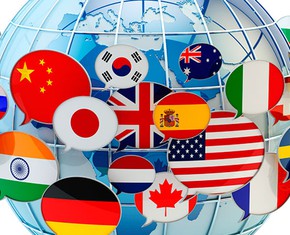The views expressed in our content reflect individual perspectives and do not represent the authoritative views of the Baha'i Faith.
Here’s an important question: can humanity possibly build a flourishing, prosperous global civilization, given the current worldwide status of women?
The Baha’i International Community just issued a statement, as a contribution to the 61st United Nations Commission on the Status of Women, that answers a resounding and emphatic “No!” to that question:
The leaders of the world bear an unenviable burden. They must provide for the well-being of their citizenries, preferring these over themselves, rejecting outdated models that emphasize self and promote imbalances of power. They must ask, and crucially begin answering, the right questions. For instance: What are the elements of our economic system that make it deeply dysfunctional? Why are women largely excluded from meaningful decision-making when their participation benefits everyone? How can we stem the tide of growing inequality threatening the stability of nations? How can we invest in the well-being of rising generations, giving them every opportunity to walk a path far more meaningful and far less treacherous than the one we have tread?
Women and men are equal, and always have been. This is a spiritual truth whose expression in the world has been suppressed throughout most of history, owing in part to imbalanced systems and structures that have long favoured men’s progress and participation over women’s. While the equality of women and men is being increasingly acknowledged, this does not automatically eliminate the impediments that can obstruct its expression in every dimension of life. On this occasion, as Member States gather to consult about the economic empowerment of women in the changing world of work, we would like to offer some comments on the nature of prosperity itself, taking for granted that it is at once the goal of economic activity and the outcome of genuine progress. – Toward Prosperity: The Role of Women and Men in Building a Flourishing World Civilization, The Baha’i International Community’s Contribution to the 61st United Nations Commission on the Status of Women, p. 1.
Humanity needs, Baha’is believe, a world civilization that treats the sexes equally. That conclusion has not come about recently—it has always been a fundamental principle of the Baha’i teachings, dating back to the mid-1800s in the Middle East, where the Baha’i Faith began. But the Baha’i International Community statement says, essentially, that the world still has a long way to go before we can reach gender equality—and that reaching gender equality forms a vital prerequisite for our prosperity:
Significant advances have been made in terms of educational access and the creation of environments for women to thrive alongside men; nevertheless, far more remains to be accomplished. Systemic and structural injustice continues to suppress women’s potential, plunging humanity into crisis after crisis. Until these inequalities are thoroughly uprooted from the fabric of society, humanity will remain mired in the conflict, despair, confusion, and imbalance that have come to define much of modern life. While the path towards prosperity has many obstacles, it is also paved with hope. – Ibid., pp. 1-2.
Everyone hopes for a prosperous world. Universal prosperity, economists, sociologists and political scientists agree, would make a huge difference on our planet, eliminating poverty and hunger, doing away with the source of so many violent conflicts, and reducing the current disparities and inequalities that plague humanity. But the “systemic and structural injustice” that prevents the female half of the world’s population from succeeding and prospering holds us all back—men and women, girls and boys. Until we can overcome that massive barrier to our world’s progress, the inequalities inherent in our current systems will continue to hold us back. If we all want that progress and prosperity to happen, the Baha’i International Community statement says:
The world civilization to which humanity aspires is one where the material and spiritual dimensions of life are in harmony, and the material aspects of civilization, such as commerce and governance, are suffused with spiritual principles, such as equity and justice. Naturally, the potency and vigour of a civilization is contingent upon the strength of its component parts. In this regard there is much to say about the qualities governing the relationships among the individuals, institutions, and other constituents that comprise society. – Ibid., p. 2.
The Baha’i teachings have long advocated the realignment of the basic relationships that govern society. Today those relationships, often based on power, military might and economic domination, continue to oppress women in many parts of the planet. In January of 1993, the Universal House of Justice, the democratically-elected administrative body that leads the global Baha’i community, said:
The lack of spiritual values in society leads to a debasement of the attitudes which should govern the relationship between the sexes, with women being treated as no more that objects for sexual gratification and being denied the respect and courtesy to which all human beings are entitled. – The Universal House of Justice, Violence Against Women, Sexual Abuse.
In fact, the Baha’i teachings say that the emancipation of women from their historic oppression and injustice, and the welcoming of all women into full partnership “in all fields of human endeavor” will create not only the necessary prerequisites for the prosperity of the world, but for world peace as well:
The emancipation of women, the achievement of full equality between the sexes, is one of the most important, though less acknowledged pre-requisites of peace. The denial of such equality perpetrates an injustice against one half of the world’s population and promotes in men harmful attitudes and habits that are carried from the family to the workplace, to political life, and ultimately to international relations. There are no grounds, moral, practical, or biological, upon which such denial can be justified. Only as women are welcomed into full partnership in all fields of human endeavour will the moral and psychological climate be created in which international peace can emerge. –The Universal House of Justice, The Promise of World Peace, p. 3.
















Comments
Sign in or create an account
Continue with Googleor